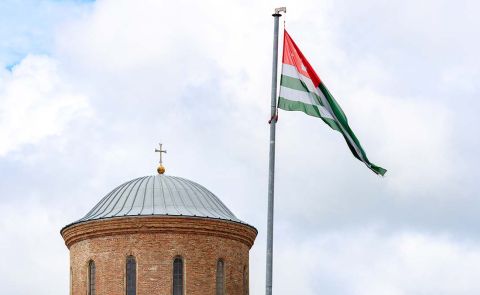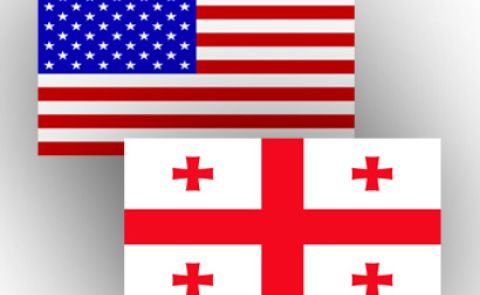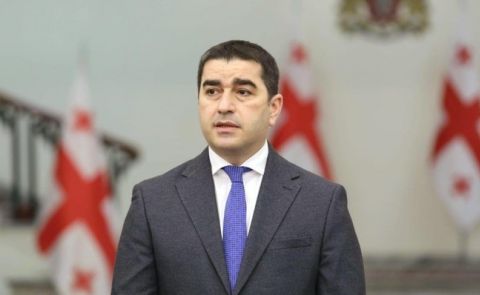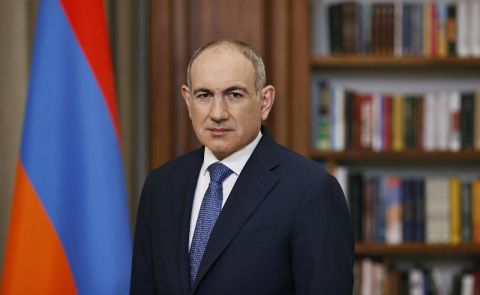
New limitations on media in Azerbaijan and Armenia

Azerbaijan
A protest march in front of the Parliament building was conducted on December 28 by three dozen journalists representing independent and alternative media.
They voiced their displeasure with the draft law "On Media," which restricts press freedom and expression. The participants in the event were outraged that the Parliament rejects the journalistic community's requests and demands changes to the measure.
The journalists read a resolution demanding that the deputies take the journalistic community's input into consideration and make the necessary revisions to the law. "This law goes against Azerbaijan's constitution and the European Convention on Human Rights. Journalists will disregard this reactionary law if our viewpoint is not taken into consideration."
Two of the action's participants were given permission to present a resolution to the Parliamentary secretariat.
This is the second journalistic protest the approval of the proposed media legislation. On December 24, a number of journalists staged a protest after the measure passed the Milli Mejlis in its second reading. They said the document was approved behind closed doors, without public debate, and that many of its elements are reactionary in nature.
Earlier, the parliament of Azerbaijan debated a new bill that would place further limits on the country's media.
The draft measure, dubbed "On the Media," passed its first reading in parliament on December 14.
President Ilham Aliyev established a new institution, the Media Development Agency (MEDIA), in January and instructed it to prepare and submit a new media statute within two months. However, until a draft of the law was leaked to select news sites a few days before it was taken up in parliament, there had been no more news about it.
Among the numerous new rules, the state will now construct a registry of journalists who must meet certain requirements (such as not having a criminal record) to be included. Owners of media outlets would be required to reside in Azerbaijan, thereby prohibiting many of the country's independent media outlets, which are operated by Azerbaijanis fleeing the country's already harsh media climate. Online news organisations will be expected to post at least 20 stories every day.
In an interview with Kanal13, media lawyer Alasgar Mammadli remarked, "Overnight, the court can order a block" on an internet source. "Then you'll only be able to reach viewers outside of Azerbaijan." Many significant non-government media outlets in Azerbaijan have already been blocked, notably Meydan TV, RFE/RL, and Azadliq.
Azerbaijan was placed 167th out of 180 countries in the Reporters Without Borders World Press Freedom Index.
Armenia
In terms of the situation in Armenia, a new rule entered into effect on October 5, 2021, increasing the maximum threshold for "insults" and "defamation" fines by three times their former value. The International Federation of Journalists (IFJ) and the European Federation of Journalists (EFJ), along with their Armenian member, the Union of Journalists of Armenia (UJA), have condemned the bill and its impact on freedom of expression.
After a Facebook user wrote an unpleasant comment on an image of the Prime Minister, the National Assembly passed the defamation law in March 2021. This month, the Constitutional Court upheld the statute. It specifies a maximum fine of €5,400 for "insults" and over €11,000 for "defamation."
This bill was referred to the court when President Armen Sarkissian refused to sign it, citing concerns about its legality and potential impact on press freedom.
"This law obviously inhibits the right to freedom of expression, which is one of the primary cornerstones of democracy and one of the essential criteria for the progress of that right and the self-expression of every individual," according to the UJA.
Armenia was placed 63rd out of 180 countries in the Reporters Without Borders World Press Freedom Index.
See Also


Moscow’s Plan in Separatist Abkhazia Focuses on Naval Logistics, Not Base Establishment

Kobakhidze Announces Full Enforcement of Georgia’s Foreign Agents Law

Kobakhidze Meets US Senator Daines to Discuss Bilateral Relations

Georgian Speaker Condemns Embassy Travel Warnings as Economic Attack

